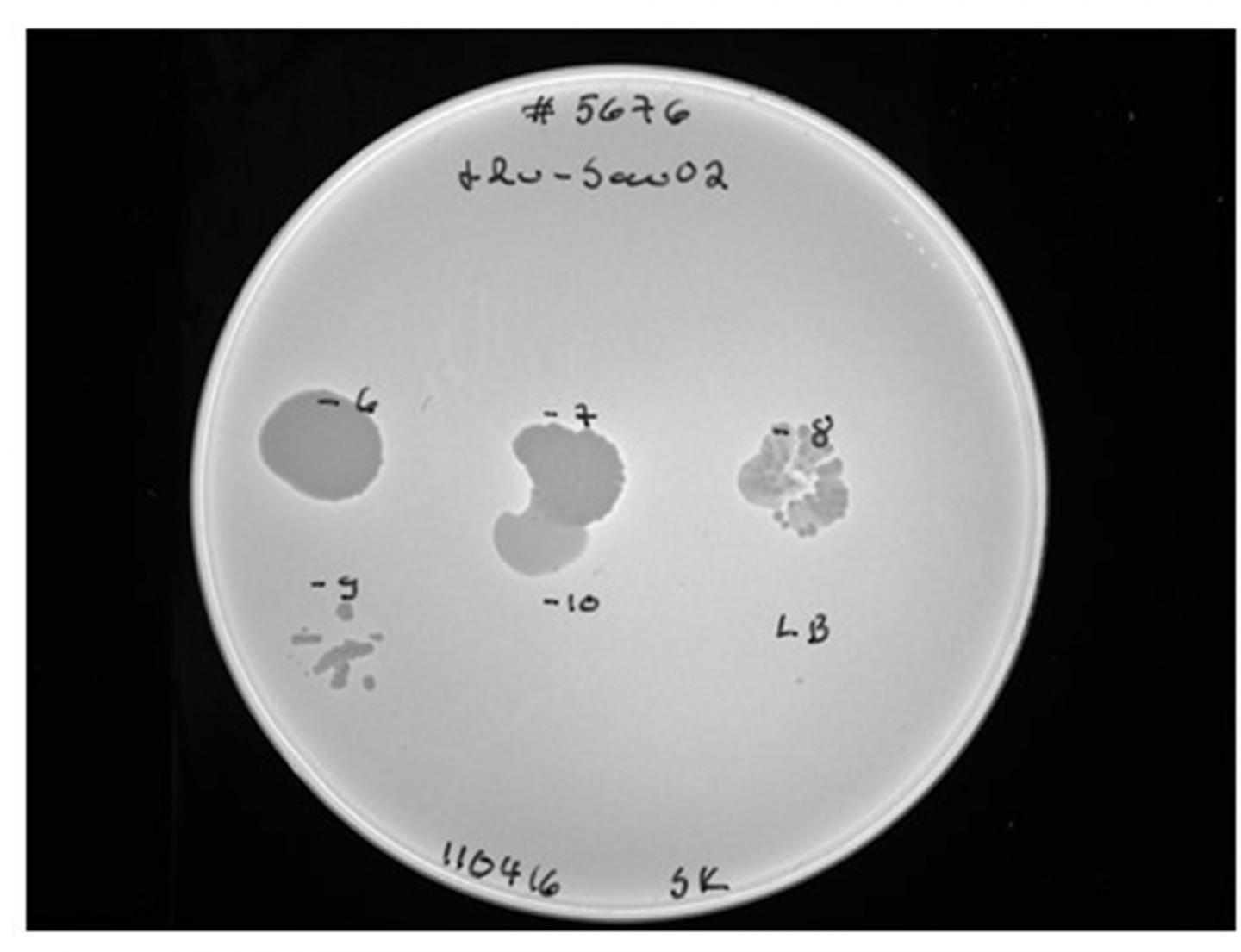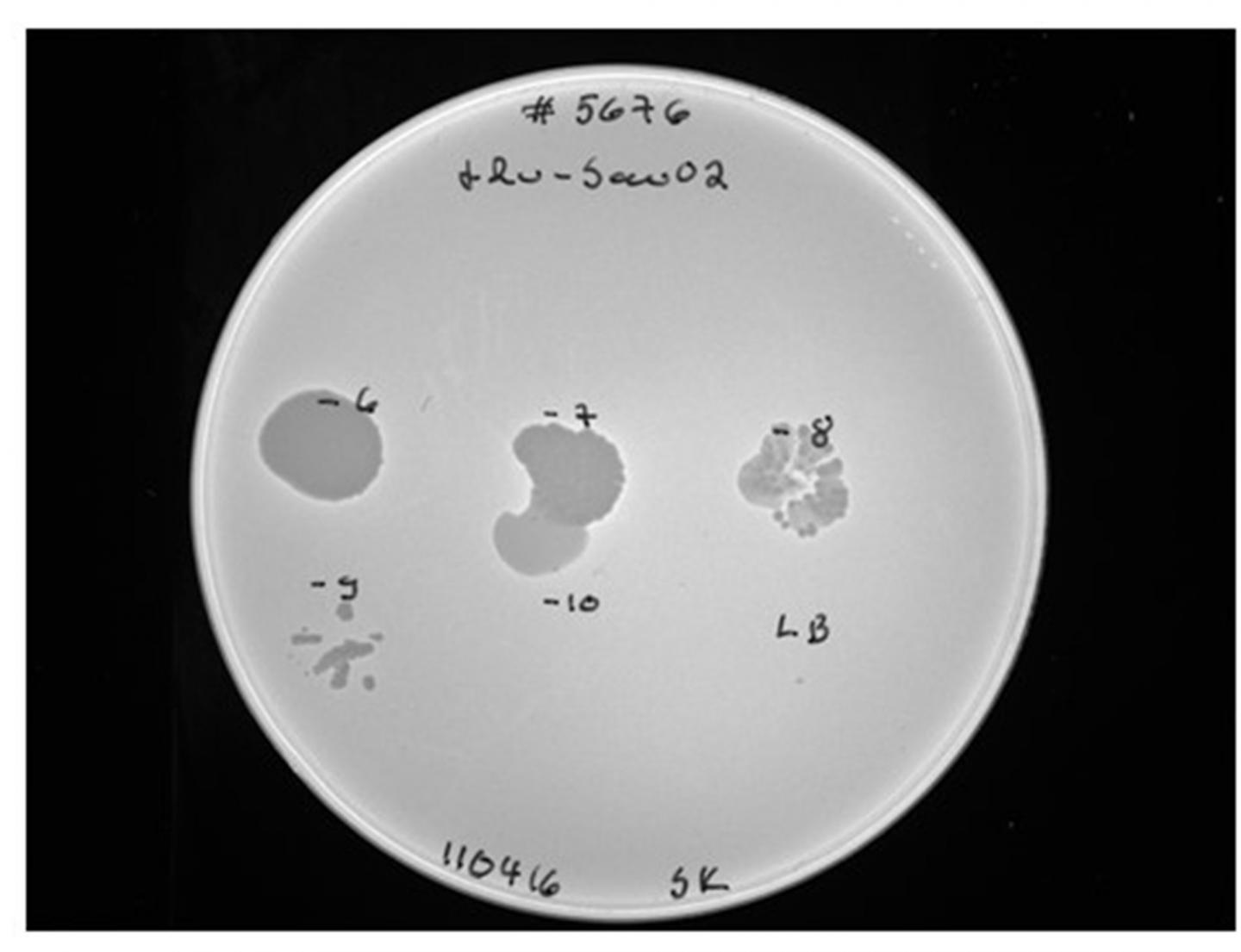
Credit: M Skurnik Lab / University of Helsinki
"The first targets in the clinical trials of phage therapy could be, for example, wound infections or the eradication of antibiotic-resistant Escherichia coli bacteria from the intestine. Also acne could be considered as a target," says Mikael Skurnik, from the University of Helsinki.
Bacteriophages (phages) are viruses that kill bacteria. The most common organisms on the planet, they control the number of bacteria and maintain ecological balances in nature. Each bacteriophage infects only a few bacterial species or types, potentially making them real precision-guided 'smart weapons' in the battle against bacterial infections.
"Unlike antibiotics, phages do not disturb the normal microbiota. And importantly, they can be used against antibiotic-resistant bacteria," Skurnik adds.
The first double-blind controlled clinical trials with phage therapy have recently been carried out in the United States, the United Kingdom and Belgium. The trials have concentrated mainly on establishing the safety of the therapy. No adverse effects have been observed in these trials. The EU has also funded the PhagoBurn project where the efficacy of phage therapy using phage cocktails to treat burn wounds is being investigated.
Phage therapy has not been used in patient care in Finland. Now, however, a new phage therapy project directed by Dr. Skurnik has received an €850,000 grant from the Jane and Aatos Erkko Foundation, which will propel phage therapy towards its first clinical trials in Finland. The trials could focus on such antibioticresistant bacteria as Escherichia coli in the gut or MRSA on the skin. Acne could also be targeted.
The isolation and characterisation of phages takes place in the phage therapy laboratory at the University of Helsinki, where patient isolates will also be tested for phage sensitivity in order to identify appropriate phages for therapy. Clinical trials will be carried out at the Helsinki University Hospital, and a preparation line of phage therapy products will be set up in the Hospital pharmacy.
"The phage therapy products need to fulfill the drug quality requirements similar to other drugs," professor Skurnik reminds.
Phages for use against clinically relevant bacteria have been collected at both the University of Helsinki and University of Jyväskylä, and presently comprise close to 200 different phages.
"We are also discussing with other European phage scientists how to distribute phages between different laboratories in Europe. It could be possible if Europe had 2 or 3 central repositories for phages. These would receive phages from researchers, store and characterise them, and phage therapy laboratories in different countries could then order phages from the repositories," Skurnik tells.
PHAGE THERAPY WAS STARTED A HUNDRED YEARS AGO – THE INTRODUCTION OF ANTIBIOTICS SUSPENDED ITS USE
Bacteriophages -bacteria eaters – were identified already in 1896 and were studied closely in the 1920s. At that time, phage therapy was used to treat both animal and human infections – such as cholera and bubonic plague – in India, often with good results.
In Western countries the invention of antibiotics ended scientists' interest in phage therapy for several decades; however, this was not the case in Eastern Europe, especially in the former Soviet Union. The Eliava Institute in Tbilisi, Georgia, is still one of the most renowned phage therapy centres in the world. In the new millennium Western countries have realised the increasing threat of antibiotic resistance and a new interest in the potential use of phage therapy has emerged.
###
Media Contact
Mikael Skurnik
[email protected]
358-503-360-981
@helsinkiuni
http://www.helsinki.fi/university/
############
Story Source: Materials provided by Scienmag





